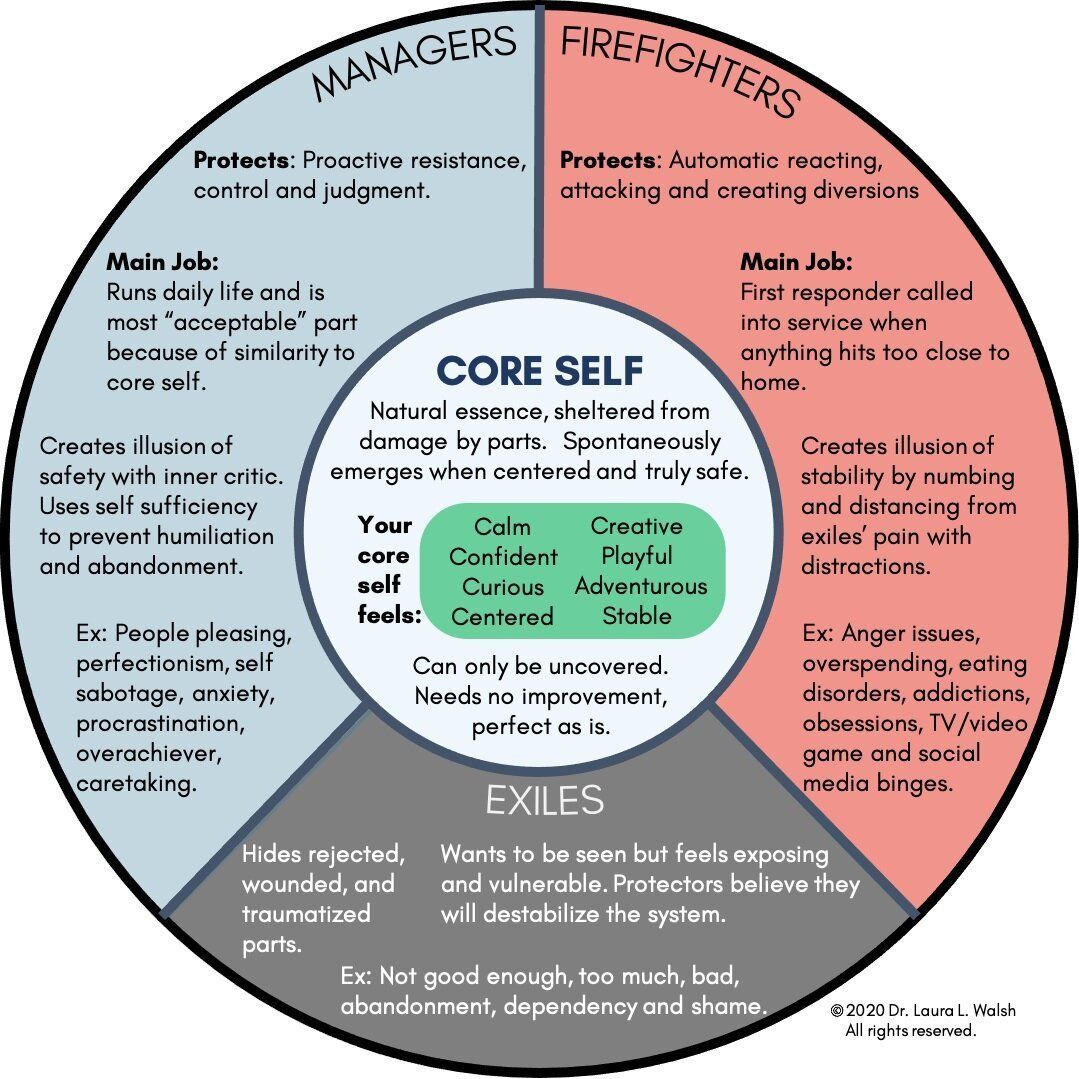Have you ever said, “Part of me wants to walk away,” “A part of me wants to talk to that toxic ex,” or “A part of me feels like just quitting my job?”

Talking in parts is not uncommon but can often go unnoticed!
We don’t often think about our parts, or sometimes we wish away our parts. I have heard people say, “I wish I weren’t such a people-pleaser” or “My perfectionism is exhausting.”
No part is bad! Our parts can be quite wonderful. Think of your parts like the many instruments in an orchestra. When in harmony, they can make a beautiful sound beyond what they can do on their own. This part becomes very noticeable when one instrument (part) is too loud, off-key, or dominating.
What is Internal Family Systems Theory?
Internal Family Systems (IFS) theory is a therapeutic approach that views our minds as consisting of multiple "parts" that interact and influence our behaviors, thoughts, and emotions. Developed by therapist Richard Schwartz,
IFS recognizes that these parts have distinct identities, roles, and intentions. This theory suggests that each part arises as a response to past experiences or traumas and tries to protect the individual somehow. IFS therapy aims to help clients develop self-awareness, empathy, and compassion for their various parts, establishing inner harmony and balance. By understanding and integrating these parts, individuals can access their true, authentic Self, making lasting transformations in their lives. IFS theory provides a framework that honors the complexity of our inner worlds and offers a path to healing and personal growth.
What are the Benefits of IFS therapy?
People can derive numerous benefits from Internal Family Systems (IFS) therapy. This unique therapeutic approach allows individuals to delve into the complex dynamics of their internal world, helping them gain a deeper understanding of their own thoughts, feelings, and behaviors. Through IFS therapy, people can identify and work with different parts of themselves, such as the inner critic, wounded child, or protective persona. Individuals can experience healing, inner harmony, and integration by fostering dialogue and compassion among these parts. IFS therapy empowers individuals to untangle emotional knots, liberate themselves from limiting beliefs, and cultivate self-compassion. The therapeutic journey of IFS opens the doors for personal growth, self-discovery, and the restoration of the authentic Self.

IFS PARTS ART
IFS (Internal Family Systems) parts art therapy is a transformative therapeutic approach that integrates the power of art and the principles of IFS therapy. Through this unique modality, individuals are encouraged to explore and express their inner world by externalizing their parts through creative mediums such as painting, sculpting, or drawing. The process allows for a deeper understanding and acceptance of the various parts within oneself, creating a visual representation of the internal dynamics at play. By engaging in IFS parts art therapy, individuals gain insight into their emotions, conflicts, and even hidden strengths. Through this cathartic process, healing can occur as individuals cultivate compassion and curiosity towards their parts, fostering integration and harmony within their inner landscape.























Share On: